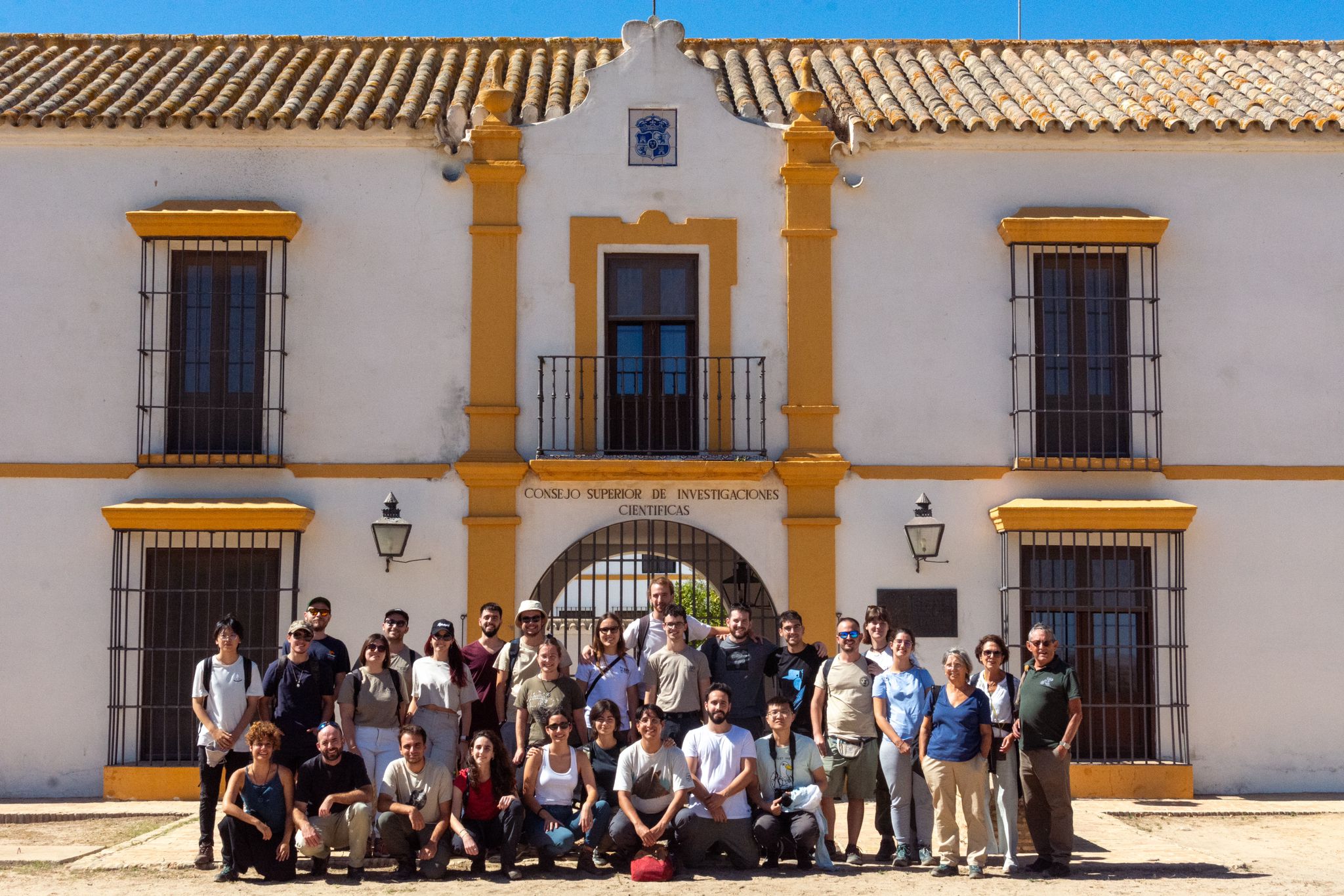PhDdays: workshops for PhD students to learn about EBD and Doñana

El grupo de estudiantes predoctorales participantes en las jornadas frente al Palacio de Doñana junto a Miguel Delibes y Carmen Díaz Paniagua, que impartieron las conferencias inaugurales.
Between 30 September and 2 October, PhDdays, the Doñana Biological Station has organised a series of workshops on the occasion of its 60th anniversary, for predoctoral researchers to learn about the history of the natural area and the centre, and about some of the technical work and research projects carried out within the Reserve.
The inaugural lectures were given by Miguel Delibes, the first PhD student at the Doñana Biological Station and former director of the centre, and the researcher Carmen Díaz Paniagua, a specialist in amphibians who has been doing research in the Doñana ponds since the 1980s and is currently studying the effects of desiccation trends on the biodiversity of these unique aquatic habitats.
Throughout the three days, the PhD students had the opportunity to participate in a series of micro-conferences to share their thesis projects, as well as their research and concerns, with the rest of their colleagues.
In addition, they also participated in several workshops on the bibliographic and social resources offered by the CSIC, on how they can disseminate their research through the centre's communication channels, on the application of artificial intelligence in research and on the use of GitHub. The researcher Carlos Camacho also gave a talk on how to try to do good science.
As part of the scheduled activities, the Phd students also had the opportunity to join the team from the Environmental Monitoring Area of the ICTS-Doñana to learn about the monitoring work carried out in the Reserve. They were able to find out how limnological sampling, lizard censuses, butterfly censuses by means of transects and freshwater turtle sampling are carried out. They also learned about the RESILGRAZE project, which aims to study how to achieve a balance between livestock farming and the conservation of high-value ecosystems such as those found in Doñana. They also had the opportunity to join the research group working with the nightjar, a nocturnal species, and the team carrying out the passerine bird ringing programme in Manecorro.

Miguel Delibes talks with the PhD students

PhD students join Nieves Díez and Isidro Román from the Environmental Monitoring Team to carry out limnological sampling.